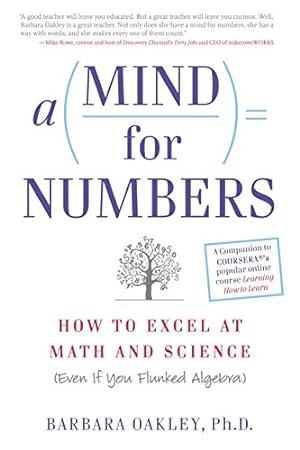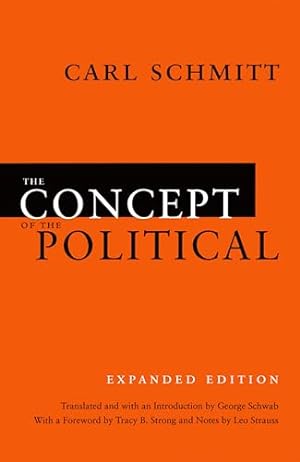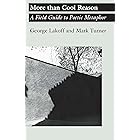Learn more
Your Memberships & Subscriptions

Download the free Kindle app and start reading Kindle books instantly on your smartphone, tablet, or computer - no Kindle device required.
Read instantly on your browser with Kindle for Web.
Using your mobile phone camera - scan the code below and download the Kindle app.

Science and Relativism: Some Key Controversies in the Philosophy of Science (Science and Its Conceptual Foundations series) Kindle Edition
- ISBN-13978-0226469485
- PublisherThe University of Chicago Press
- Publication dateAugust 6, 2012
- LanguageEnglish
- File size937 KB
Kindle E-Readers
- Kindle Paperwhite
- Kindle Voyage
- Kindle Paperwhite (10th Generation)
- Kindle Paperwhite (11th Generation)
- All new Kindle paperwhite
- All New Kindle E-reader
- Kindle
- Kindle Oasis
- Kindle Oasis (9th Generation)
- Kindle Touch
- Kindle (10th Generation)
- All New Kindle E-reader (11th Generation)
- Kindle Paperwhite (5th Generation)
- Kindle Oasis (10th Generation)
- Kindle Scribe (1st Generation)
Fire Tablets
Shop this series
See full series-
Next 3 for you$76.64
-
Next 5 for you$163.83
-
Next 10 for you$383.15
-
All 21 available$712.48
-
Next 3 for you$76.64
-
Next 5 for you$163.83
-
Next 10 for you$383.15
-
All 21 available$712.48
This option includes 3 books.
This option includes 5 books.
This option includes 10 books.
This option includes 21 books.
Customers also bought or read
- The Moral Arc: How Science and Reason Lead Humanity Toward Truth, Justice, and Freedom
 Kindle Edition$15.33$15.33
Kindle Edition$15.33$15.33 - A Mind For Numbers: How to Excel at Math and Science (Even If You Flunked Algebra)
 Kindle Edition$13.99$13.99
Kindle Edition$13.99$13.99 - The Invention of Science: A New History of the Scientific RevolutionEditors' pick
 Kindle Edition$9.99$9.99
Kindle Edition$9.99$9.99 - Knowing What We Know: The Transmission of Knowledge: From Ancient Wisdom to Modern MagicEditors' pick
 Kindle Edition$14.99$14.99
Kindle Edition$14.99$14.99
Customers who bought this item also bought
Editorial Reviews
From the Back Cover
About the Author
Product details
- ASIN : B01ET2CLII
- Publisher : The University of Chicago Press (August 6, 2012)
- Publication date : August 6, 2012
- Language : English
- File size : 937 KB
- Text-to-Speech : Enabled
- Screen Reader : Supported
- Enhanced typesetting : Enabled
- X-Ray : Not Enabled
- Word Wise : Enabled
- Print length : 220 pages
- Best Sellers Rank: #972,610 in Kindle Store (See Top 100 in Kindle Store)
- #261 in Epistemology (Kindle Store)
- #928 in Epistemology Philosophy
- #1,558 in Science History & Philosophy
- Customer Reviews:
About the author

Discover more of the author’s books, see similar authors, read book recommendations and more.
Customer reviews
Customer Reviews, including Product Star Ratings help customers to learn more about the product and decide whether it is the right product for them.
To calculate the overall star rating and percentage breakdown by star, we don’t use a simple average. Instead, our system considers things like how recent a review is and if the reviewer bought the item on Amazon. It also analyzed reviews to verify trustworthiness.
Learn more how customers reviews work on AmazonTop reviews from the United States
There was a problem filtering reviews right now. Please try again later.
- Reviewed in the United States on September 6, 2013I think this books is ideal if you want to get the broad brushstrokes (and the important references) for the main schools of thought in the philosophy of science. I would say essential reading for those in the social sciences/humanities, who, in my opinion, do not get enough exposure to epistemology.
- Reviewed in the United States on March 18, 2010This book provides an excellent introduction to debates in the philosophy of science. Laudan constructs a four-way conversation among positivists, realists, pragmatists and relativists. The core of the debate lies in the three empiricists confronting the relativist, and this is the most successful part of the book. The differences among the three non-relativists get somewhat short shift. In particular, the presentation of differences between positivists and realists is not sharp; the differences between pragmatists and the positivists/realists only gradually emerge in the second half of the book.
Laudan is himself a pragmatist, and the point of the conversation is to bring you around to this position. As a pragmatist before I read this book, I was naturally sympathetic with his position. Laudan makes his case well, while taking seriously the positions of other positions.
Though introducing some sophisticated debates, Laudan presents this material very clearly. This book should be accessible to undergraduates in many fields, and to a general college-educated readership.
- Reviewed in the United States on January 19, 2003The book is structured as a transcript of a debate between philosophers attending a symposium on the role of science and relativism; each represents one of the major epistemic positions -- logical positivism, pragmatism, realism, and relativism. They don't come to a unified conclusion, of course -- what else would you expect from philosophers? -- but in the process of the discussion, a lot of core issues in modern epistemology are covered in a way easily accessible to a layman. The discussion is generally framed in terms of relativistic position on various epistemic issues, and each opposing philosophical scheme's counter to such.
This book is the best introduction to modern epistemology that I have ever read. It is relatively small, which is a blessing, even though the writing is simple as far as philosophical texts go; and it is deep enough to both inform, and stimulate further meaningful inquiry. I would stongly recommend this book to anyone approaching epistemology and philosophy of science for the first time.
- Reviewed in the United States on July 26, 2007This very esoteric book is obviously not for the layperson, so it should be evaluated for how well it connects with its intended audience - philosophers of science and students thereof. The first segment of this audience will be inspired (positively or negatively), but the second segment will not. Here Larry Laudan has advanced the relativist school of the philosophy of science via a rather unique use of the old Greek dialogue, with a fictional discussion among four characters that are composites of various influential philosophers. Here the conversationalists are Pragmatist, Positivist, Realist, and Relativist in a discussion at a fanciful conference on epistemic relativism and scientific knowledge. Granted, this method is considerably effective in advancing how the four schools of thought would approach the issue. But alas, such is the state of modern philosophy that even fictional philosophers are dry and pedantic. It's a very odd fantasy in which the characters argue for dozens of pages over pathologically obsessive theoretical minutiae and the author makes no attempt at connecting with the outside world. Here the fictional philosophers, just like many real philosophers, fail to make any impact with the people they study or those they claim to teach. Consequently, despite his rather unique writing method it is difficult to determine what point Laudan is trying to make about his school of relativism, because the book's conversationalists reach no conclusions and merely blame each other for failing to have all the answers about the state of human knowledge. Once again, just like real philosophers, who can do little more than argue for years about things that the real world left behind long ago. [~doomsdayer520~]

































